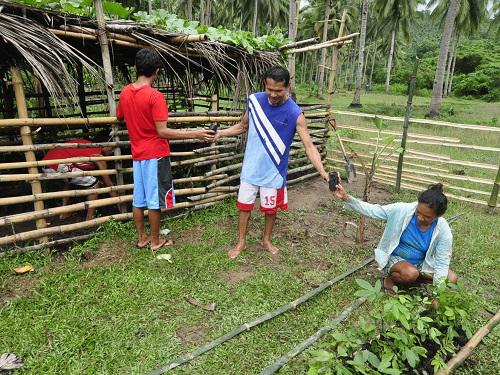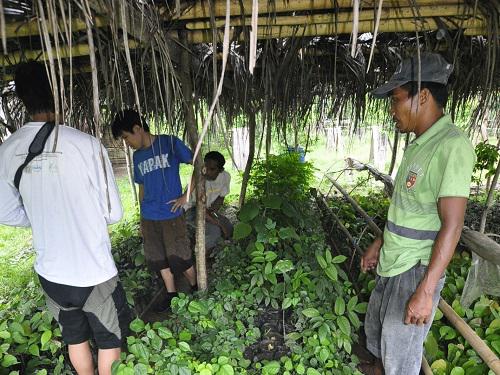Hendrik Freitag
Other projects
3 Sep 2014
Indigenous Forest Rehabilitation for Biodiversity Conservation and Promotion of Sustainable Income for the Rural Communities in Roxas, Mindoro
The Lake Manguao aquatic biodiversity conservation project of the AQUA Palawana Programme – a joint initiative of the Western Philippines University and the International Research Institute of Entomology at the Museum of Natural History Vienna - aims therefore to contribute in distinguishing biodiversity components of the freshwater ecosystems of Palawan.

Palawan represents a Biodiversity corridor and hotspot within the Southeast Asian archipelago. Due to a larger part of remaining forest cover compared to other Philippine provinces, the island is called the “last frontier”. However, the proceeding loss of biodiversity as a consequence of increased land use by a growing population urgently requires the protection of key habitats and switch to sustainable land use practices. This requires knowledge and monitoring of the ecosystems.

The Lake Manguao aquatic biodiversity conservation project of the AQUA Palawana Programme – a joint initiative of the Western Philippines University and the International Research Institute of Entomology at the Museum of Natural History Vienna - aims therefore to contribute in distinguishing biodiversity components of the freshwater ecosystems of Palawan. A main focus of its activities will be the Manguao Catchment, the area around the only freshwater Lake on the Island. Initial small-scale surveys discovered already a number of species endemic to the lake catchment. It can be assumed that it has an outstanding part of endemic taxa. But the area is of further risk of land conversation as fire clearance is still practiced affecting both, terrestrial and freshwater ecosystems. The executing authorities, the Palawan Council for Sustainable Development (PCSD) and the Provincial Government of Palawan aim at an effective protection for this key area of freshwater biodiversity in the Philippines by a Protected Area Suitability Assessment. The data gathered will support this Assessment. By the training of junior scientist and conservationists included in the project, their independent work and forthcoming monitoring activities will be enabled.
However, a lasting conservation can only be assured if the local communities agree and support this vision. Therefore, it focuses also on raising of people's awareness and knowledge-transfer to the local communities aimed to introduce sustainable land use practices such as “Rainforestation Farming”, a long term evaluated method to increase both, livelihood standards and habitat conditions. Additionally, local pupils will be sensitized for the perception of conservation and environment issues.
The project activities include:
- Biodiversity surveys, field courses and subsequent biodiversity component identification with experts and university students
- Preparation of easy teaching material for classes, local communities and officials
- Meetings and workshops on conservation and environment issues with local communities, pupils and officials
- University courses on Philippine macroinvertebrate freshwater biodiversity and conservation